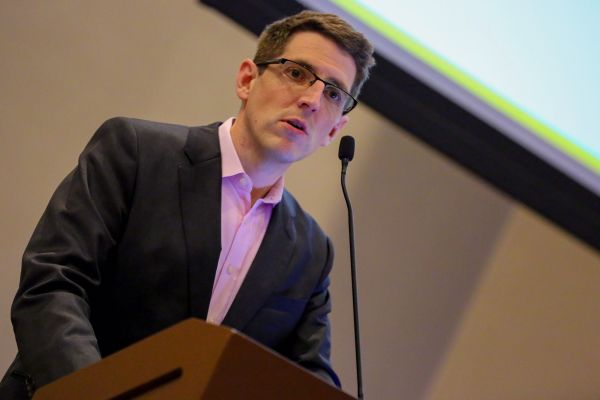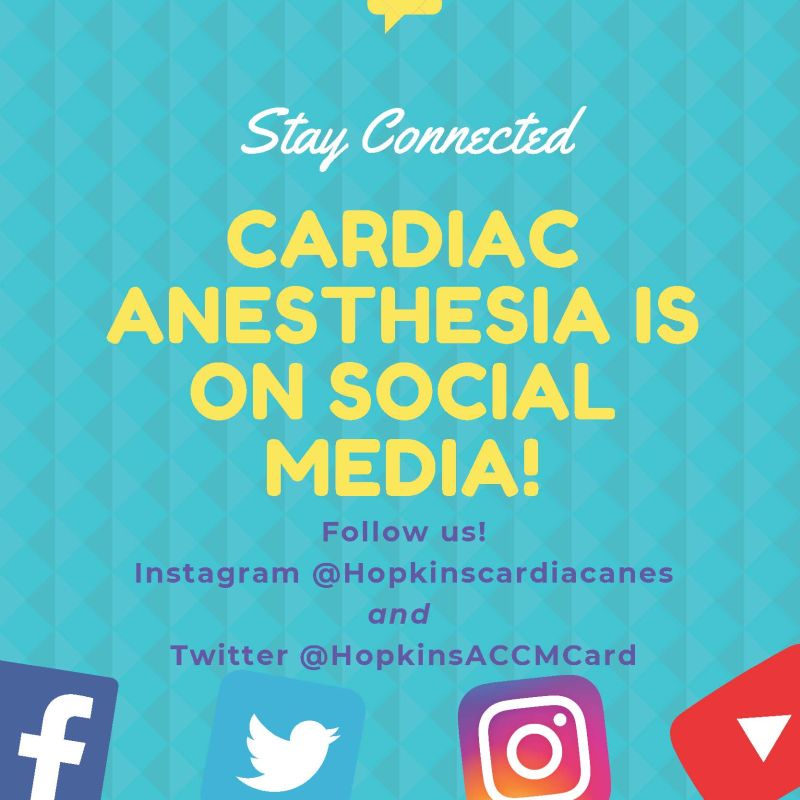Our Mission:
The mission of Hopkins Medicine is excellence in research, education and clinical care. The cardiac anesthesia division has years of success in all 3 categories.
Cardiac surgery and procedures can be complex, invasive, and be accompanied by a great deal of patient and family anxiety. The Cardiac Anesthesia Division at Johns Hopkins represents and practices alongside world renowned cardiac care providers to instill comfort and confidence for patients and families receiving cardiac care. Procedures for cardiac patients are done in some of the most technically sophisticated operating suites in the world. Each cardiac operating suite contains state of the art monitoring equipment including TEE machines with 3D capability to promote the highest quality and safe patient care for each surgical procedure. This care continues during the postoperative period in the critical care suite. Additionally, the Cardiac Anesthesia Division collaborates with the Cardiac Electrophysiology group to support all diagnostic and intervention procedures in the EP procedural suites. Also, Cardiac anesthesia exclusively provides real-time interventional echocardiography guidance for structural heart procedures including percutaneous mitral, aortic and tricuspid valve repair/replacements – as well as for left atrial appendage procedures. Faculty are recognized experts in echocardiography, including 3D echocardiography and interventional echocardiography.
Our Faculty
The Cardiac Division’s faculty are heavily involved in research, addressing fundamental questions of discovery in both basic science and in the clinical domain. With approximately $2 million in annual extramural funding, patients and their families can feel confident in their providers’ techniques and expertise while receiving general anesthesia and continuous vital monitoring in the operating rooms.
The cardiac anesthesia faculty are incredibly involved in education on a local as well as international level. Faculty consistently speak at national and international conferences as well as hold leadership positions in orchestrating these conferences.
Dr. Steppan Awarded NIH Grant for Heart Failure Study

Congratulations to Dr. Jochen Steppan, who was awarded an NIH R56 grant from the NIH for his study “Thrombospondin-1’s role in heart failure with preserved ejection fraction (HFpEF)”. This study addresses the underlying changes that happen in the heart of patients who have normal systolic function. This type of heart failure disproportionally affects women after menopause and has a high mortality rate given that there is no treatment available that targets the underlying structural cardiac changes.
In his proposal Dr. Steppan aims to rectify this by evaluating if the matrisomal protein TSP-1 can regulate local mediators of inflammation (such as TGF-beta1), thereby preventing adverse cardiac remodeling. He will test this proposal in multiple disease models with particular focus on the difference between the sexes. Completion of this study over the next year will lay the groundwork for his upcoming R01 application to establish the biology and pathobiology of TSP-1 in a hierarchical manner and evaluate its potential to treat HFpEF by targeting matrix remodeling.
Anesthesia & Analgesia Features Dr. Hensley’s Research in Print and on Podcast
 The August Anesthesia & Analgesia featured article, “Perioperative Plasma in Addition to Red Blood Cell Transfusions Is Associated with Increased Venous Thromboembolism Risk Postoperatively” by Dr. Nadia Hensley examines plasma and red cell transfusions compared to red cell transfusions alone and the risk of venous thromboembolism among surgical and cardiovascular surgical patients on day of surgery. The database study of 48,580 patients showed those exposed to plasma + red cell transfusions was associated with increased 30-day mortality and VTE.
The August Anesthesia & Analgesia featured article, “Perioperative Plasma in Addition to Red Blood Cell Transfusions Is Associated with Increased Venous Thromboembolism Risk Postoperatively” by Dr. Nadia Hensley examines plasma and red cell transfusions compared to red cell transfusions alone and the risk of venous thromboembolism among surgical and cardiovascular surgical patients on day of surgery. The database study of 48,580 patients showed those exposed to plasma + red cell transfusions was associated with increased 30-day mortality and VTE.
The section editor of Anesthesia & Analgesia, Dr. Shannon Farmer, interviewed Dr. Hensley regarding her featured article in this brief podcast: https://journals.lww.com/anesthesia-analgesia/Pages/podcastepisodes.aspx?podcastid=3
Social Media

Division Faculty and Clinical Associates
James (Jake) Abernathy, MD, MPH
Division Chief, Cardiac Anesthesiology
Mary Beth Brady, MD, FASE
Vice Chair for Education
Medical Director, Post Anesthesia Care Unit
Director, Intraoperative and Structural Transesophageal Echocardiography
Lee Goeddel, MD
Associate Program Director Critical Care Medicine (Anesthesiology) Fellowship
Director of Perioperative Ultrasound Research
Michael Grant, MD
Director of Anesthesiology for Enhanced Recovery After Surgery
Director of Clinical Operations
Nadia Hensley, MD
Director of Patient Safety and Clinical Quality
Physician Advisor, Anesthesiology and Critical Care Medicine
Youn-hoa Jung, MD
Megan Kostibas, MD
Program Director, Cardiothoracic Anesthesia Fellowship
Laeben Lester, MD
Co-Director, Johns Hopkins Airway Program
Course Director, Mark Rossberg Memorial Multidisciplinary Airway Course
Danny Muehlschlegel, MD, MMSc, MBA
Director, Department of Anesthesiology and Critical Care Medicine
Sinead Nyhan, MD
Co-Director of Perioperative Medicine, High Risk Cardiovascular Disease
Jochen Steppan, MD, DESA, FAHA
Director of Perioperative Medicine, High Risk Cardiovascular Disease
Cardiac Fellows
Avi Dobrusin, MD
Brett Heber, MD
Tymoteusz Kajstura, MD
Gaurav Raj Shrestha, MD
Emmanuel Tito, MD
Samira Vithani, MD
Electrophysiology (EP) Cohort
CRNAs in the EP cohort are expert in providing anesthesia to cardiac patients undergoing minimally invasive procedures such as radiofrequency ablation (RFA) of dysrhythmias, implantation and removal of pacemakers and defibrillators, device lead removal/revision, implantation of pulmonic valves, the Lariat procedure, electrophysiological studies, cardioversion, and transesophageal echocardiograms. The EP cohort currently has 28 CRNAs. This cohort is under the cardiac anesthesia division and has an excellent collaborative practice with the cardiac anesthesiologists.
Cardiac CRNAs
Andrew Benson, DNP, MSN, CRNA, FAAN
Deborah Bowling, CRNA
Kelley Clark, MS, CRNA
Joan Chouili, MSN, CRNA
Chuck (Lewis) Eder, MS, CRNA
Gary Gauthier, MSN, CRNA
Kimberly Hall, MSN, CRNA
Emmanuel Ibhaze, CRNA
Wailin Lau, CRNA
Cathy Lawry, CRNA, MS
Barry Lepley, CRNA
Brooke Lester, CRNA
Wai-Ling Lo, MSN, CRNA
Kevin Lopez, MS, CRNA
Scott Manning, MSN, CRNA
Paige McMurtrie, CRNA
Kevin Miller, DNP, CRNA
Tyrenne Mills, DNAP, CRNA
Dipika Patel, DNP, CRNA
Samantha Simmons, MSN, CRNA
David Travis, CRNA, MSN